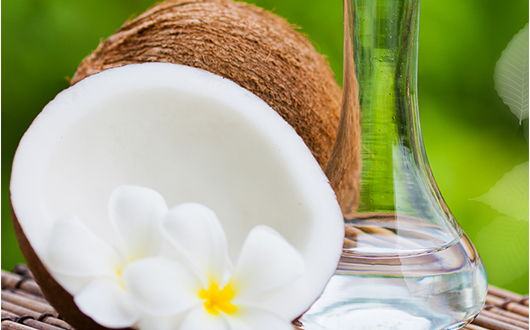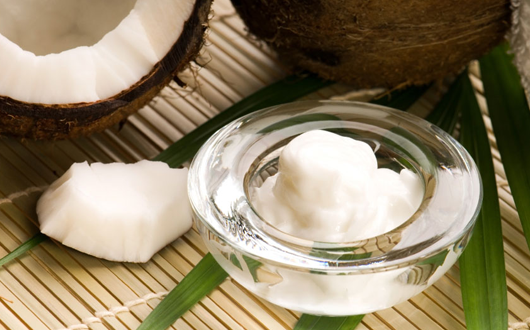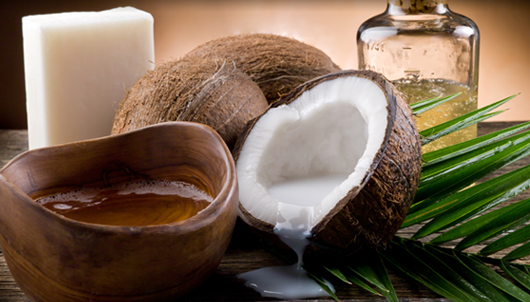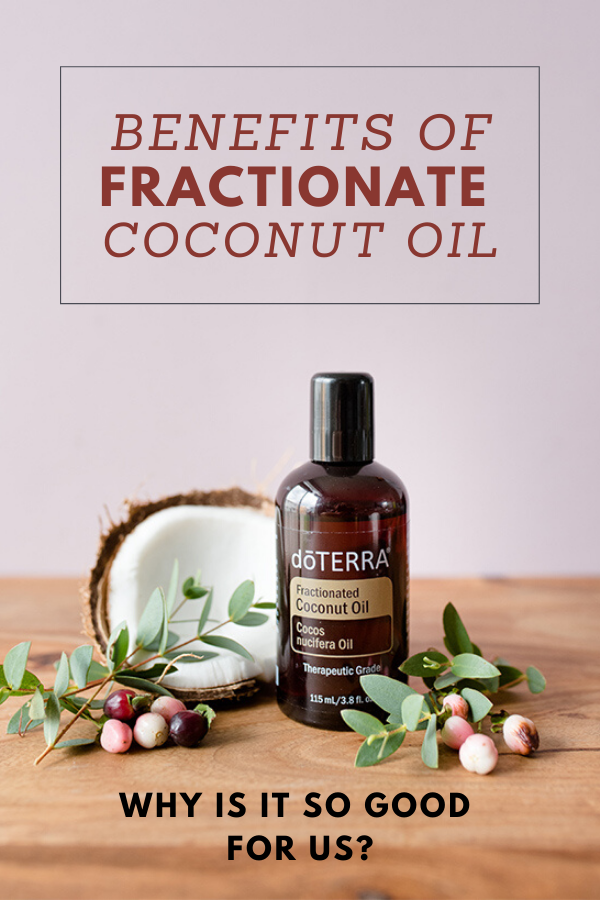
If you have recently tried to look through your supermarket aisle for coconut oil, chances are you will find an overwhelming number of varieties like, virgin oil, extra virgin coconut oil, fractionated coconut oil, RBD coconut oil, and many more; and easily get discouraged.
So we decided to dig deeper into one of the latest versions called fractionated coconut oil, which is being promoted for its amazing beauty benefits and also as a dietary supplement.
So what is Fractionated Coconut Oil?
As the name suggests, fractionated coconut oil is a fraction of coconut oil which has been processed to increase the shelf life and is very high in saturated fat. Raw coconut oil mainly consists of fatty acids like lauric acid (composes 50% of coconut oil), caprylic acid, capric fatty acids, myristic acid and glycerol.
The process of fractionating involves breaking up the oils according to their melting points and removing the long chain triglycerides (i.e. lauric acid) which remain solid at lower temperatures.
This leaves behind Medium Chain Triglycerides (so the oil is also referred as MCT), mainly caprylic and capric fatty acids, which have a much lower melting point and are saturated. Due to its property of low melting point, it remains liquid at room temperatures and commonly referred to as “liquid coconut oil”.
Both caprylic and capric acids are saturated, making the oil fully saturated, very stable and resistant to rancidity. This renders the oil a very long and stable shelf life.
Virgin coconut oil vs. Fractionated coconut oil

- While fractionated coconut oil is always liquid at room temperatures, virgin coconut oil is solid and looks more like fat or butter rather than oil.
- Fractionated coconut oil is a fraction of the coconut oil literally, as it doesn’t have the main lauric acid.
- Virgin oil is the more preferred choice of cooking oil as it has minimum processing involved, making it completely natural.
- But fractionated coconut oil has higher concentration of capric and caprylic acid making it a better antioxidant and anti-inflammatory.
- Also it has a very stable and long shelf life compared to virgin oils which can go rancid.
- Fractionated oil is used more in special diets as a supplement and for its amazing skin benefits.
- It is practically colorless and odorless, and does not leave a stain behind when compared to virgin coconut oil.
Benefits and Uses

- Skin care products – The MCT acids make the oil light and non-sticky that is easily absorbed into the skin; making it ideal for topical application. It leaves the skin feeling smooth and supple without the greasy effect. It is also widely used in moisturizers, ointments, lip balms and cosmetics and is better than petroleum-based products that can clog pores and cause irritation.
- Soap Making – Fractionated coconut oil is a soap makers favorite as the medium chain fatty acids make soaps that dissolve easily in water, providing better cleaning properties. They make bigger bubbles and even work great with hard water.
- Carrier oil for other essential oils and herbal extracts in aromatherapy
- Medicines – The MCTs are known to have many health benefits including increasing metabolism, which can be vital for those considering it for weight loss. It also acts as an antibacterial and anti-fungal agent; credit again to the MCTs.
- Dietary supplements – In a turnaround of events, coconut oil is now being touted for its healthy heart, anti-cancer and weight loss benefits.
- Hair care products – Fractionated oil renders the hair smooth and silky, with the advantages of coconut oil without the sticky effect.
- Culinary usage – Since the MCT is very stable and does not go rancid easily, it is also used for cooking. But one needs to ensure its composition and processing before use. Even though it has saturated fat, it is cholesterol and trans-fat free and shown to regulate cholesterol levels.
Caution
Fractionated coconut oil is a manufactured product with a variety of compositions. So before you use it for your cooking or baking needs, you should ensure what percentage of oil is unsaturated or polysaturated which is not recommended for high heat cooking. If it is composed only of MCT acids, i.e. saturated fat, one does not need to worry about using it as cooking oil.
It might be a little expensive since it involves more processing than the regular coconut oil. However, the advantages of stable shelf life, and its various uses in medicines and cosmetics, make it well worth the price.

Enjoyed Benefits of Fractionated Coconut Oil – Why Is it So Good For Us?? Share it with your friends so they too can follow the Superfoodsliving journey.
Share on Pinterest
